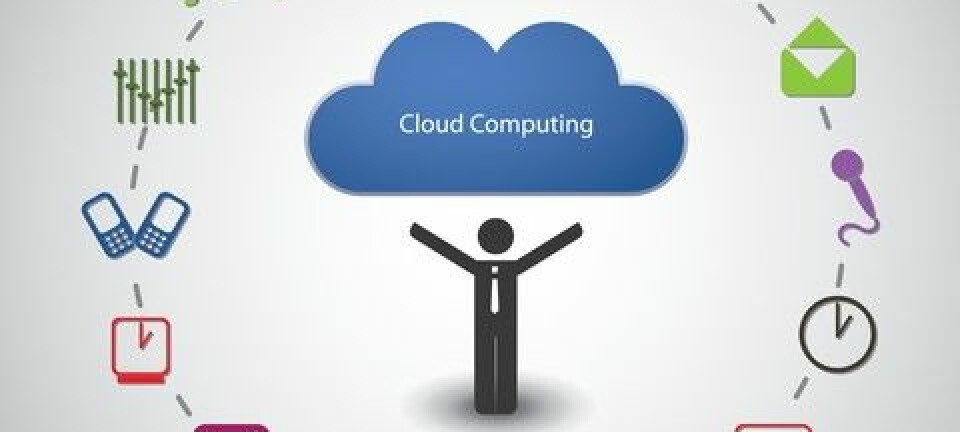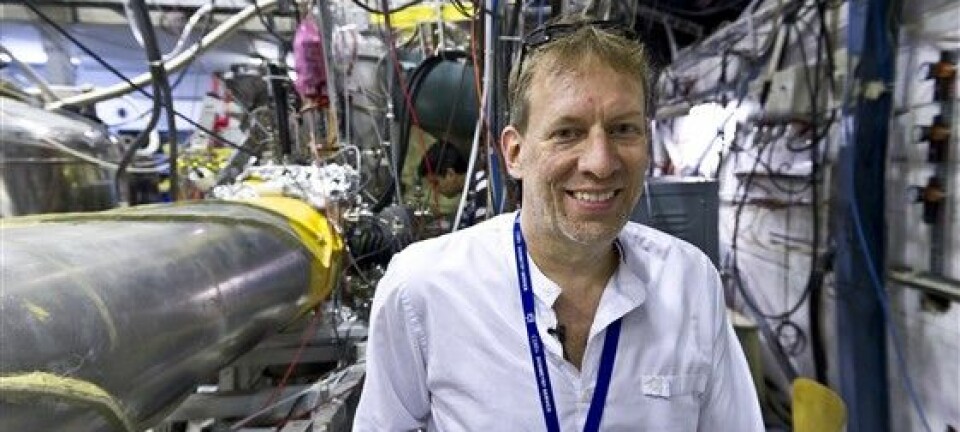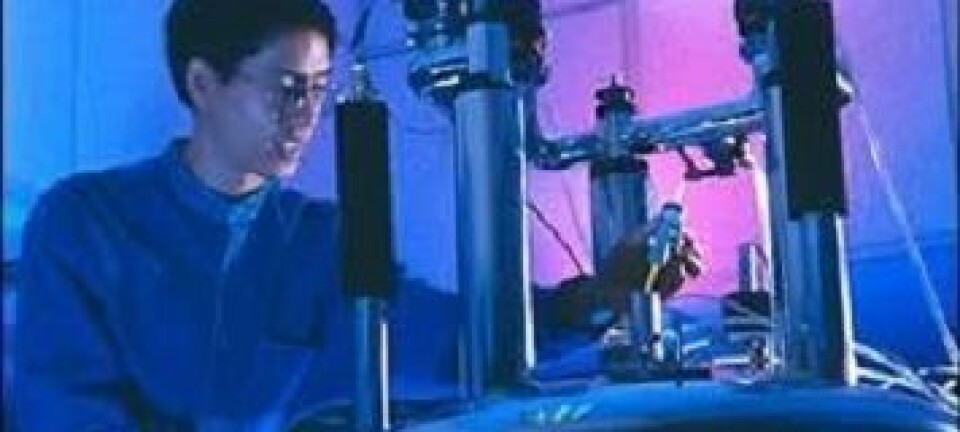
Quantum computing: designing the internet of the future
Mathematician hopes to uncover how to communicate most efficiently in a network based on the laws of quantum mechanics.
The internet allows people to exchange information extremely fast, even when they are located on opposite sides of the globe.
Data shoots back and forth, but the process isn’t necessarily facilitated in the smartest way. The internet of the future could be considerably more efficient.
The reason for this is that data can be transferred in new ways if the laws of nature that regard nature’s smallest components -- i.e. quantum physics -- are employed.
“Using quantum information theory, we are trying to find out how we can communicate more effectively by way of quantum physics,” says Matthias Christandl, professor at the Department of Mathematical Sciences at the University of Copenhagen.
When we communicate optimally, for instance over the phone -- the information transfer is based on classical physics. Each information unit, i.e. each bit, is transferred by means of a number of particles that pass between the two people talking. But that’s not the only way of communicating, explains Christandl.
“If single quantum particles are used instead, the information can be transferred more efficiently -- and more securely, for that matter. For instance, the quantum particles could be photons where the information is hidden in the photons’ condition.”
More parties exchange information
By now, scientists have a fairly good idea of how quantum physics is best employed to send information between two places.
However, things get a little more complicated when several parties need to exchange information, which is the case with the internet. This is where Christandl wants to make a difference.
“Often more than two parties communicate online, and we don’t really understand how best to transfer the information between them,” he says.
For instance, he says, think of a telephone conference between three people, or an online game between a group of friends. When you use internet banking, there might be a security company involved.
“In these cases quantum physics could be employed to make communication more efficient – but we have yet to find out how best to do this,” says Christandl.
With funding from the Sapere Aude programme run by the Danish Council for Independent Research, Christandl and his research group will spend the next few years developing protocols for communication between several parties.
As the goal is for the protocols to be implemented in quantum experiments, the scientists work in close collaboration with experimental physicists from the Niels Bohr Institute at the University of Copenhagen.
Entangled particles
But a more efficient internet will require a whole new network based on quantum mechanics.
Quantum internet uses particles that are so ‘entangled’ that they behave as a unified system -- regardless of the distance between them.
“The entanglement of quantum particles can be stronger than that of ordinary particles -- they can correlate to an extent that classical particles can’t. Today, such correlated particles can be created in the lab,” says Christandl.
“So it’s imaginable that someday correlated particles can be distributed so each participant in the communication gets one. I get a particle and you get a particle. Afterwards I can send two information units -- two bits -- by sending a single quantum bit,” he says.
This means that if you already have the correlation, you can have communication that’s twice as efficient, says Christandl. “We understand how this is done between two parties. And my project aims to find feasible experimental ways to do this just as efficiently between three or more parties.”
More inputs for the same calculation
According to Christandl, ‘multi-party quantum information theory’ can also be used for calculations that involve several parties that all bring inputs and share an interest in the result, such as a group of people trying to compare calendars to schedule a meeting.
“Say we need an hour to talk next week. I can send you my diary so that you can find out when there’s an available slot that suits you. Then you can ask me to reserve that time. But it takes a lot of information -- a lot of data needs to be sent,” says Christandl.
“But all we want is to find a time that suits us both. The question is whether we can find that out without one of us having to send the other an entire diary -- whether we can save that information,” he says.
“That’s also part of my research: finding the most efficient method when several parties contribute information to a common calculation. With quantum internet this could be done not just twice as efficiently, but several times more efficiently,” says Christandl.
---------------
Read the original story in Danish on Videnskab.dk
Translated by: Iben Gøtzsche Thiele












